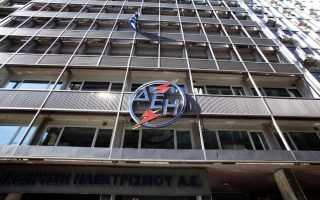In fuel trading, cheap may mean cheat

More than one in seven gas stations in Greece, or 15 percent, deliver less fuel to their customers for their money, according to a university study, while another report showed that hikes in the special consumption tax on fuel will likely mean that the revenue target will not be met next year.
The survey by the National Technical University of Athens found that the average rate of cheating on fuel quantities was 2-3 percent – not including the legal discrepancy of 0.5 percent – while there were cases where motorists got as much as 9 percent less fuel that what they paid for. The majority of these incidents, meanwhile, were observed at stations with cheaper gas prices.
Professor Evripidis Lois, who led the NTUA survey, stressed that the Finance Ministry should be aware of these figures, as the data are fully recorded via the inflow-outflow system. Although this technology has been installed in at least 95 percent of the country’s gas stations since July 2015 – at a cost of over 90 million euros – it remains under-used due to staff shortages at the General Secretariat for Information Systems.
Such violations, as well as excessive taxation, are the main problems being faced in the market, which shrank by 37 percent that between 2009 and 2013, according to a report by the union of fuel trading companies (SEEPE). During the presentation of the report on Monday, union representatives stressed the need for improvements in legislation on combatting the illegal fuel trade and called for more on-site inspections.
Violations, they warned, will only increase once the special consumption tax goes up from January 1, 2017, leading to unfair competition in their sector.
Another study, presented on Monday by the Foundation for Economic and Industrial research (IOBE), showed that the upcoming fuel tax hike by 0.04 euros per liter on gasoline, 0.10 euros on diesel and 0.065 euros on heating oil, will reduce the added value of the industry for the economy by some 530 million euros per year. It will also lead to a reduction in employment by 10,700 jobs and slash revenues from taxes and levies by 178 million euros, IOBE said.





